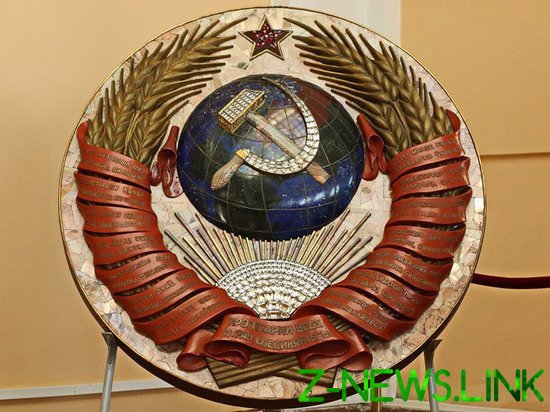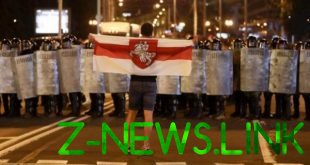
The myth of the Soviet succession creates a very dangerous political trends
At the end of the year it’s hard not to turn to the memory of the Soviet Union, created and disbanded in the last week of December and have lived without a few days to 69 years — exactly so much, how many lived on average and its citizens in the most successful thirty years of existence of this state. Today about the country in which the majority of today’s Russians still managed to be born, created many myths, each of which cannot be assessed not so much in a short article, but in the lengthy book. I would like to focus on the most important myth always repeated as a matter of course.
It is a myth about the succession of the Russian Empire, the Soviet Union and the Russian Federation, embodied in the famous formula of Vladimir Putin: “the Soviet Union was the same Russia, just called different.” In my opinion, this is a strange simplification of history today creates a very dangerous political trends, and in the future may become fatal for the country.
Historians have documented in some detail the process of emergence of the concept “Russia”, referring to his primary use to the end of the XV century in connection with the borrowing of the Greek word “Рωσία”, which for the Byzantines was the equivalent of Russia. The wide use of the term was only after the Moscow Principality (and later Kingdom) has dramatically expanded its limits at the expense of expansion to the East and the annexation of Novgorod and Pskov on the West. The widespread use of this term in official documents dates from the first half of the XVI century, and the name of the country can be considered to have arisen after the coronation of Ivan the terrible in 1547 (though then it was about Russian, not about the Russian Kingdom). The famous phrase “Great and Small and White Russia” recorded later, in 1654-1655. the Period of formation of the Russian (and not “Moscow” or “Russian”) state was thus for a time the rapid expansion of the country’s borders, whose territory grew from 2.8 million sq km in the beginning of the reign of Ivan the terrible to 15.8 million to 1697, and was at that time 92,6% of the area of the present Russian Federation.
It should be noted that as soon as Russia began further expansion, the country was conceptualized as the Russian Empire is an Empire created by Russia as its metropolis. Of course, the titles of the emperors remained the same, indicating that they ruled “Russia”, but do not forget that, according to the 1897 census, the Russian share in the population of the Empire was 44.3%, and with a little – and Belo-Russians — 66,8%. The Russian Empire, therefore, was not synonymous with that of Russia, which arose as a result of the consolidation of the historic “Russian” land settlement and colonization to the middle of the XVII century.
Why do I stop here? First of all, because the Soviet Union, the end of the existence of which the Russian share in the population rose slightly (to 50.8%), were not Russian in the same way as it was not and the Russian Empire. Note: in the case of Britain, France or Spain, and their empires very similar identity to anyone even comes to mind, but the notorious unity of the territory plays in the case of “Russia” a cruel joke. The Russian Empire was not a nation-state and reminded the other two composite Empire of the XVII–XX centuries — Austro-Hungarian and Ottoman. Faced with the challenges of modern times, all of them did not survive the First world war.
The Soviet Union was the only power that arose on the site of one of these former empires with virtually no loss of significant areas. The talent of Lenin as a politician and a visionary was that he realized the impossibility of recreating the state in its previous limits without a complete revision of its fundamental reasons. The “price” of the Soviet Union was not the notorious “federalization”, and the room is at the heart of the state concept of the ideological principle of unity of the “progressive forces,” is building a new future. The main in the USSR was the idea; it was not zeal the Russian early, and dissemination system of the Soviet republics on the globe. The Soviet Union re-United the territories of the former Russian Empire, only abandoning any ethnic certainty in the name of the state and a fully dipped from his “Russianness/the Russian”. The fact that the USSR was not any “new Russia”, and stresses unique to any Empire extroverted type of development in the course of which the metropolis for decades have spent a huge human and material resources for the development of the periphery, while in itself the standard of living sometimes was significantly lower than in the national republics. The collapse of the Soviet Union became inevitable not because of the crisis, founded by Lenin in fact a Confederate principle, as a result of the economic bankruptcy of socialism and the growing awareness of the futility of the Communist idea (with geopolitics and arms in the USSR everything was very good, only to work for a distant goal no longer wanted and could not). A relatively peaceful separation of the national state is rather the merit of the Communists: after all, exactly where the borders were drawn without due consideration of national factors, sooner or later have pockets of conflicts and tensions.
The Russian Federation, whose boundaries were first drawn in 1918 and which became the formal successor of the Soviet Union, not in any other sense, except as a party to several international agreements, the successor of the USSR is not, as strange as may appear this assertion. It is the heir of the historical Russia, which existed from the late sixteenth until the early eighteenth century. In this sense its state today has found the same certainty which the state of Britain, France or Spain did not lose even during the existence of their overseas empires. The only fundamental difference is in our case the fact that Russia of the XV century were consolidated, not as national but rather as a religious state, governed his subjects first and foremost as Orthodox, and in the period of its existence within both Imperial and Soviet structures has done nothing for the development of its national identity. And that means only one thing: the main task of at least coming century Russian history is “new development” of its own territory, building relationships between the center and the regions and the final determination of the optimal political structure of this young, but at the same time a very old state. In the beginning of its historical path, Russia could be governed as a unitary state, but in modern changing world is almost impossible; and therefore, the question of the internal organization of the country and nature management is most important for us and our children.
Unfortunately, today’s Russian political and intellectual elite looks at the history of their own country from another point of view. The idea that “Russia” is unjustly deprived of large areas of the reincarnation of the Russian Empire and the Soviet Union, created a vicious geopolitical strategy of the reconquest, or at least a partial “gathering” of the lands that were lost “by chance”. This, of course, causes unnecessary tension along the entire perimeter of the Russian borders with the territories of the former Empire and the Union, which is fraught with aggravation of relations with the rest of the world as a whole. However, that is far more dangerous, the new expansionism is justified through the concept of “Russian world”, which takes us from Russia to the Russian-ness (and sometimes even russkoyazychnyy and Orthodoxy). This creates a significant threat to the Russian state itself. After all, in the Russian Federation and so the right of peoples don’t look “symmetrical” in the Soviet Union, all fifteen who formed the country of the republics were determined by the names of the titular Nations; now in Russia there are about 70 Russian territories and more than 20 national republics, which obviously are in a different position than the republics of the Soviet Union, as, on the one hand, can’t get out of the country and, on the other hand, are inside the political entity bearing the name of a people. Structure of the Russian Federation is much more controversial than construction of the USSR; and in such a situation to rely on Russian identity is extremely dangerous (and no alternative of those who dreams of reviving the Soviet Union, no).
The Soviet Union has been dead for almost thirty years. He created a huge common cultural space, which remains largely cohesive, even today. But he did not create a political nation is, in essence, killing politics as a phenomenon; he did not rise to the integral of patriotism, which is very quickly recovered as national phenomenon in each of the newly formed States; and he could not produce anything of the marked first and foremost because he was the heir of the country and power, not Russia, and the Russian Empire. Today, our country and our people must do everything to escape from the Imperial past, to recreate which they are not. Any other choice seems to me to be disastrous.
© 2020, paradox. All rights reserved.





